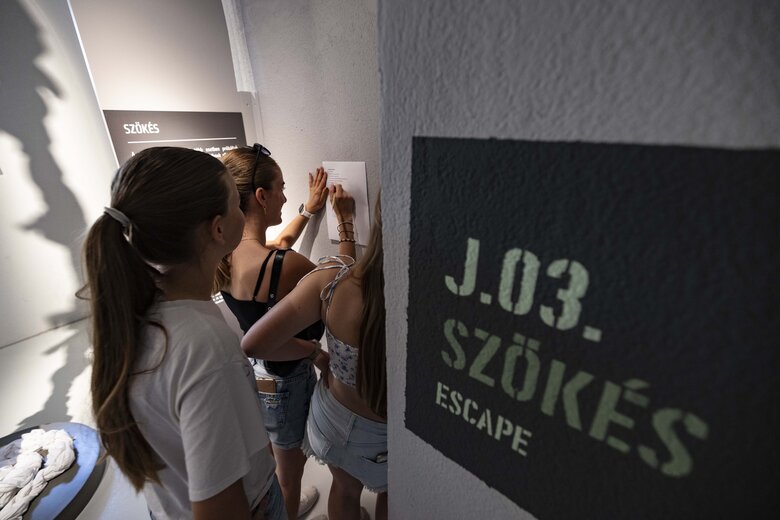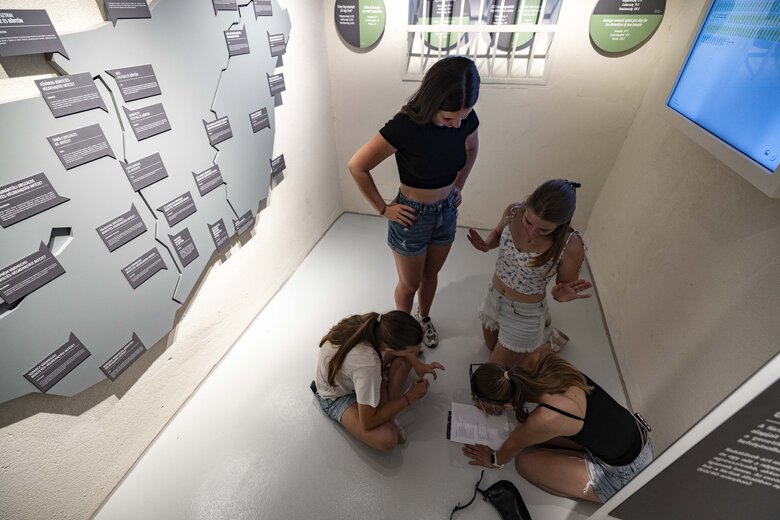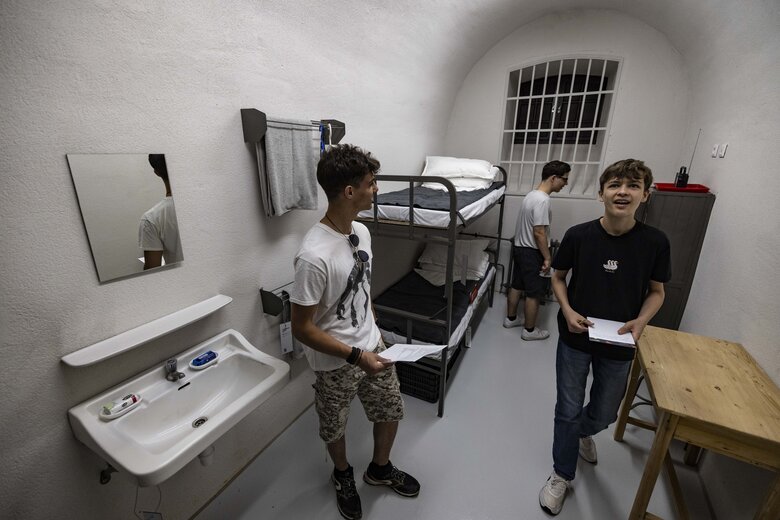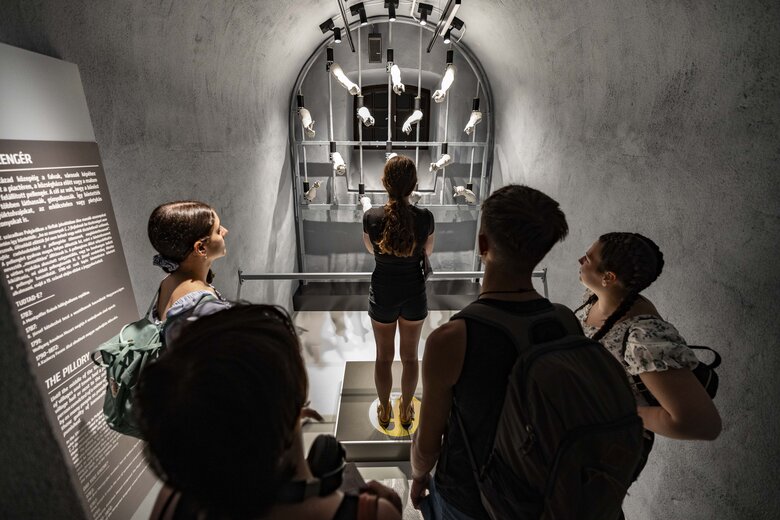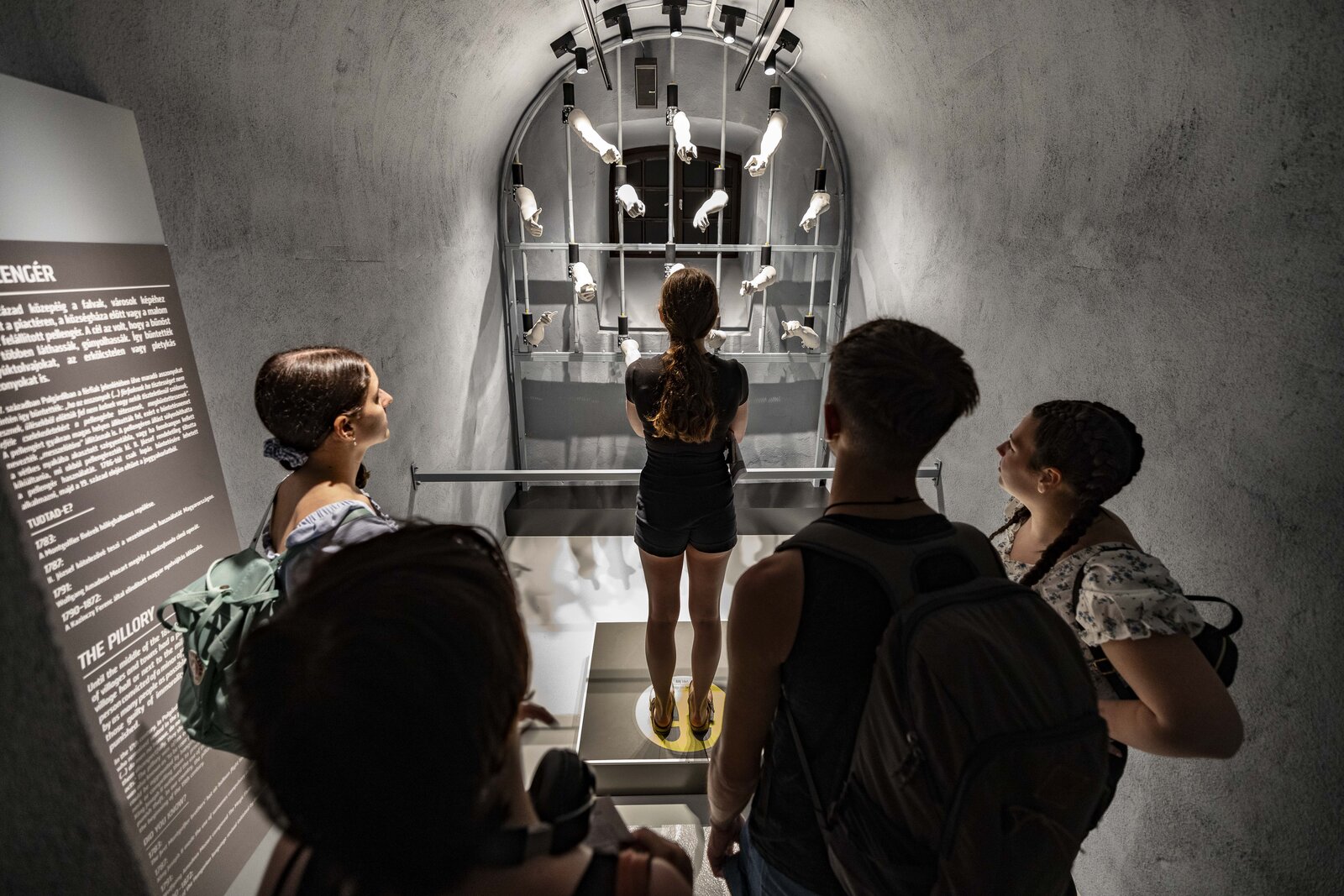

Unconventional History Lesson
This special history class offers students a fascinating opportunity to actively explore the historical changes in crime and punishment. Here, students are not passive listeners but detectives, piecing together answers from the exhibition materials to questions such as: What was considered a crime in different eras? How were various offences punished? What does it mean to “pay for one’s crimes”? Who were the innocent victims? Using hidden information and historical sources embedded in the exhibition, they uncover how investigations were conducted, what life was like behind prison walls, and how the very notion of punishment has evolved over time.
Short Recommendation:
Through independent research within the exhibition, pupils discover how the concept of crime and punishment has changed across the ages. Working in groups, they search out historical sources and artefacts, then summarise their findings and reflect on how perceptions of crime have been shaped by social, legal, and moral norms. The session concludes with a shared discussion, where discoveries are exchanged, and the impact of these changes on society is debated. This approach is not only highly interactive but also encourages the development of historical thinking and critical reflection.
The sessions may also be linked to curriculum-related themes such as:
· Changes in crime and punishment
· Constables, executioners and outlaws (Veszprém in the Reform Era – with a twist)
· Hostage-taking in Veszprém (local histories of the Hungarian Soviet Republic)
· Victims of the 1848–49 and 1956 revolutions and wars of independence
· Honourable prisoners (victims of dictatorships in Veszprém prison)
Ticket Information
Unconventional history lesson (interactive workshop)
· For school groups only, with 15–30 participants
· 2,000 HUF per person
Please notify us of your intention to visit at least 48 hours in advance by email at: [email protected]
